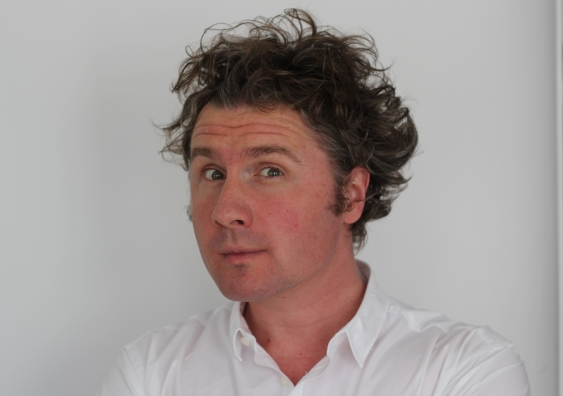Bad Science author to receive UNSW medal
Researcher, doctor, campaigner and author of best-selling books Bad Science and Bad Pharma Dr Ben Goldacre is the recipient of the 2016 UNSW Scientia Medal for Science Communication.
Researcher, doctor, campaigner and author of best-selling books Bad Science and Bad Pharma Dr Ben Goldacre is the recipient of the 2016 UNSW Scientia Medal for Science Communication.

Deborah Smith
UNSW Media
9385 7307 or 0478 492 060
deborah.smith@unsw.edu.au
Researcher, doctor, campaigner and author of best-selling books Bad Science and Bad Pharma Dr Ben Goldacre has been announced as this year’s recipient of the UNSW Scientia Medal for Science Communication.
The University of Oxford academic will be presented with the award by UNSW Acting Dean of Science Professor Peter Lovibond next week at a public event where Goldacre will discuss the misuse of science and statistics by quacks, journalists, politicians, celebrities, researchers and drug companies.
An Evening with Ben Goldacre at the Enmore Theatre on Sunday 25 September is Goldacre's only Sydney appearance on a national tour organised by Think Inc., and tickets are still available.
Goldacre, who is a Senior Clinical Research Fellow in the Centre for Evidence Based Medicine at the University of Oxford, is best known for his popular books and Bad Science weekly column written for the Guardian newspaper between 2003 and 2011.
An outspoken critic of alternative therapies, anti-vaccination scares and drug company secrecy, he defines bad science as people making claims they assert are scientific, but which the scientific evidence does not support.
“Pulling bad science apart is the best teaching gimmick I know for explaining how good science works,” he says.
The UNSW Scientia Medal for Science Communication was established in 2014 by Deputy Vice-Chancellor (Education) Professor Merlin Crossley, when he was Dean of Science. It recognises excellence in public communication of science and honours those who have shared their knowledge and scientific insights to inform, inspire and engage the public on scientific topics and issues.
“Dr Goldacre has done the public a great service by using his formidable investigative skills to reveal how vested interests can distort science for their own benefit,” says Professor Lovibond.
“He also educates people about how evidence-based medicine works, so they can evaluate dodgy claims themselves. And he does it with wit, humour and courage, attracting large audiences for his books and public talks.”
Goldacre’s 2008 book Bad Science: Quacks, Hacks and Big Pharma Flacks, targets claims by alternative therapists, nutritionists and other health practitioners that are not supported by the scientific evidence. He also takes journalists to task for giving credence to those who peddle bad science.
The award-winning 2012 sequel, Bad Pharma: How Drug Companies Mislead Doctors and Harm Patients is an even harder-hitting publication, examining poor practices in medicine, such as badly designed studies, the withholding of the results of clinical trials, and biased dissemination of evidence about the efficacy of drugs.
Goldacre is the co-founder of the AllTrials campaign by doctors, academics, pharmacists, patients and others to get all clinical trials registered and their results published. His academic research involves the development of tools to use data more effectively in healthcare and academia.
Last year, UNSW Scientia Medals for Science Communication were awarded to the world’s most famous physicist Professor Stephen Hawking of the University of Cambridge and his daughter, Lucy Hawking, who has co-authored books for children on science with her father. Lucy was present on the stage of the Sydney Opera House while Stephen appeared via hologram to give his public talk, thanks to Cisco and the UNSW Big Questions Institute.
The inaugural winner of the Scientia Medal in 2014 was geologist and broadcaster Iain Stewart, Professor of Geoscience Communication at Plymouth University, who is well known for TV documentaries including Rise of the Continents.